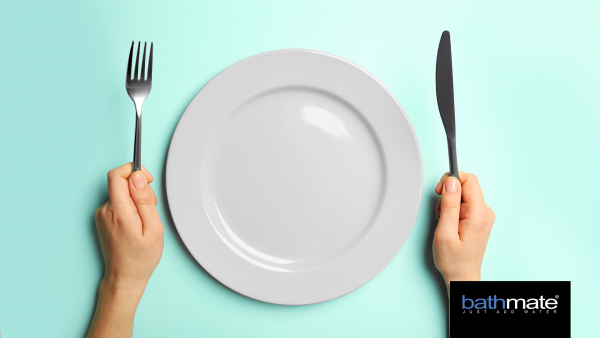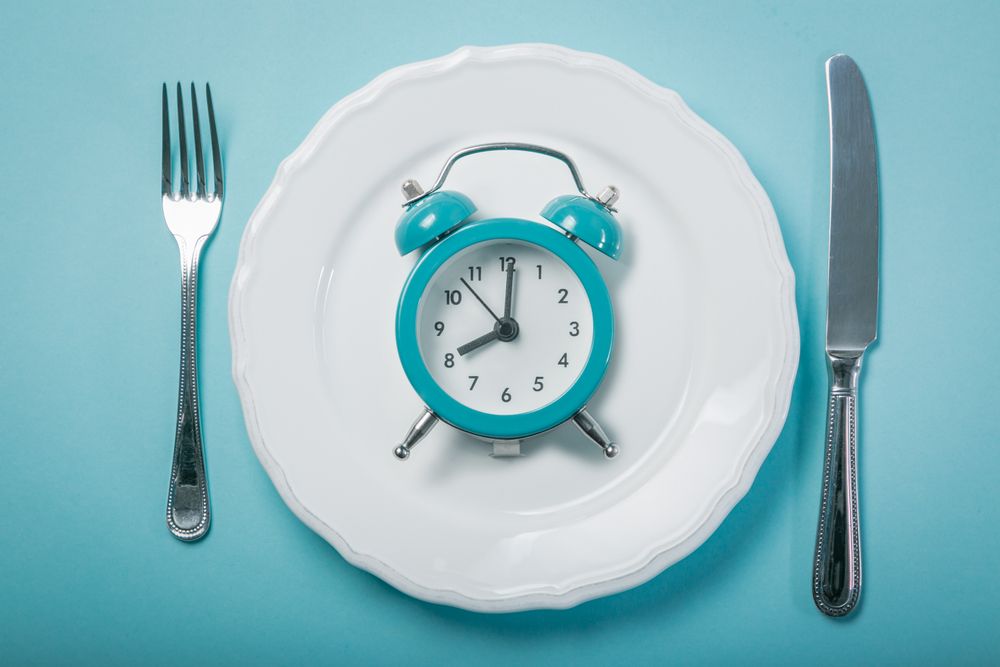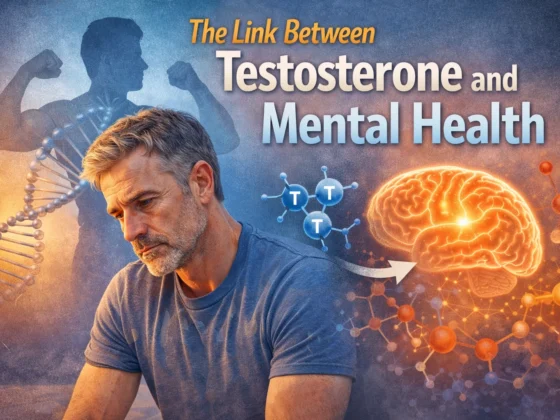Last Updated on 18th August 2021 by Charlie Walsh
Celebrities have one thing at their disposal that most us don’t, wads and wads of cash! They have dietician’s and personal trainers and very expensive plastic surgeons. The message they sell to the masses is that their detox tea (or other miracle product) is the reason why they look so good, when in reality it’s simply not the case. Not only do they have everything we mentioned above but their images tend to be touched up in Photoshop before seeing the light of day.

So with these modern day scams popping up all over the place, what real options do we have?
One of these options is intermittent fasting.
What is intermittent fasting?
Intermittent fasting is a cycle of eating and fasting periods during the day. There are different kinds of intermittent fasting:
•5:2 method. That kind of fasting allows you to eat normally five days a week. During the weekend days are your fasting days. But it does not mean you do not eat. You just have to keep it between 500 and 600 calories.
•Eat-stop-eat method. Once or twice a week you just do not eat and starve.
•16/8 method. You eat the whole amount of necessary calories during 8 hours and fast for the rest 16 hours. You can do this every day, or a few times a week.
•Alternate-Day method. In other words, fasting every other day. Some people believe that you can allow for 500 calories during the fasting days because a full fast every other day seems rather extreme. Bathmate do not recommend this for beginners.
•The Warrior Diet. This is a quite controversial one. Fast during the day and eat a huge meal at night. So you can eat small amounts of raw fruits and vegetables during the day, then eat one huge meal at night. It means that you feast at night.
•Spontaneous Meal Skipping. It means you can skip some meals and still have benefits of it. When you do not feel hungry – do’t eat. Simple as that, and another benefit – you do not need to follow any plan!
TIP. Do not forget about drinking non-caloric drinks like water, teas or coffee.

Is intermittent fasting good for you? What are the benefits of intermittent fasting?
The biggest advantage of it is losing weight. It is often called detoxification and purification. The most common benefits of fasting are body fat and weigh loss, mental improvement, lower your blood insulin and sugar levels, increase of energy, faster metabolism, lower blood cholesterol, Longer life, clean life style, and decrease in chance of Alzheimer disease along with an inflammation reduction.
There is no single diet that will suit everybody. Diets are for a period in your life where you need to make a change in habits. A fast based diet can simplify your life and become a lifestyle choice that sticks around should you personally feel the benefit. Everybody knows about those diets that force you to cut your calories, eat less than you should be and feel weak all the time – this type of drastic diet can lead to health problems later on in life. The most important thing to consider is that the cleaner you eat, the better you feel as your body gets rid of toxins and fat. Clean eating does not mean you can’t eat bread or pasta – or that you have to starve yourself. You just have to know how much calories you can consume. You can eat very tasty food but also take a moment to think about nutrition. A cheeseburger at 600kcal is not the same as grilled chicken with raw veggies at 600 kcal. Fasting is free.

Here is the proper way to count your calories before you start intermittent fasting.
TDEE – Total Daily Energy Expenditure
TDEE= BMR+TEA+TEF+NEAT
(BMR – Basal Metabolic Rate)
(TEA – Thermic Effect of Activity)
(NEAT – Non-Exercise Activity Thermogenesis)
Activity type:
Sedentary (little or no exercise, desk job) = BMR x 1.2
Lightly Active (light exercise / sports 1-3 days / week) = BMR x 1.375
Moderate Active (moderate exercise / sports 3-5 days / week = BMR x 1.55
Very Active (hard exercise / sports 6-7 days / week) = BMR 1.725
Extreme Active (hard daily exercise / sport and physical active job OR 2x day training – marathon, contest, etc) = BMR x 1.9
MAN:
BMR=(9,99xweigh(kg)+(6,25xheight(cm)-(4,92xage)+5
WOMAN:
BMR=(9,99xweigh(kg)+(6,25xheight(cm)-(4,92xage)-161
TEA=(also add EPOC – calories burnt after training):
Weights lifting – up to 9kcal per minute
Cardio – up to 10 kcal per minute
EPOC – low intensity +5kcal, medium intensity +35kcal, high intensity +180 kcal
TEF=6-10% of TDEE
NEAT=200 up to 900 kcal
It depends on your body kind.
Endomorph – 200/400 kcal
Ectomorph – 700/900 kcal
Mesomorph – 400/500 kcal
This is the best way to count your calories.
After that you can start to fast. Which method is your favourite one? The next question is if you want to lose weight, keep your current weight or gain some kilos? If you want to lose – cut 300 hundred of calories in your fasting, if you want to keep – do not change the TDEE results, if you want to gain some kilos – eat a bit more but in a sensible way.
Is intermittent fasting something you would consider doing? Having read this article, what is your opinion? It may be difficult at first but as with anything in life we get out what we put in.










